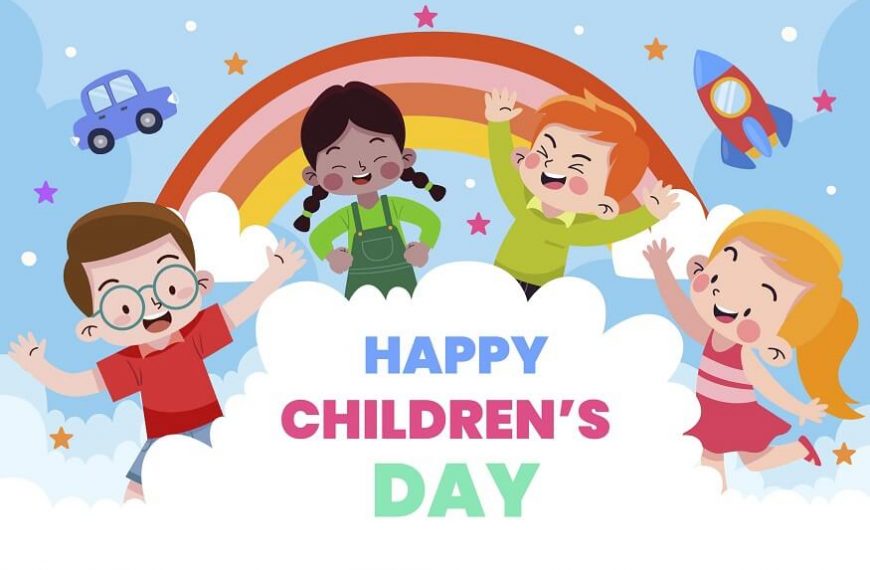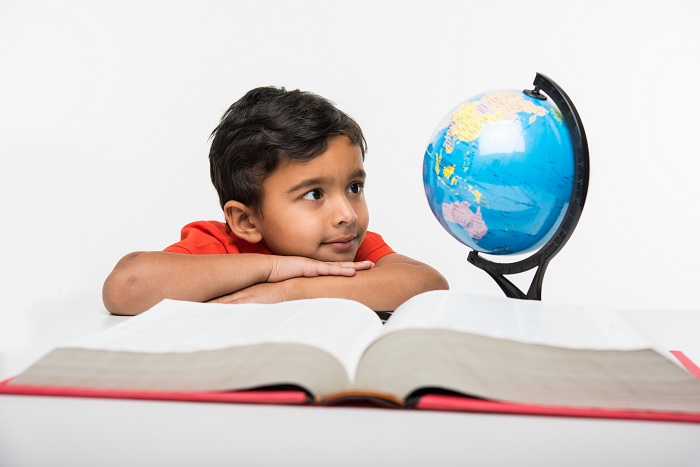There is probably no Indian who cannot answer the question — When is Children’s Day? Children’s Day, or ‘Bal Diwas’ as it’s often called, is celebrated on November 14 in India every year to commemorate the birth anniversary of Pandit Jawahar Lal Nehru, India’s first Prime Minister. Children’s Day history in India goes back to his love and affection for children and strong conviction that they are the building blocks of society, which won him the loving title of ‘Chacha Nehru’ among children. He believed that children should be brought up in a nurturing environment as they were the future flag bearers of India. The Children’s Film Society India was established by him in 1955 so that children had access to native cinema. He fought for children’s rights and an inclusive education system for all children. The central idea behind celebrating Children’s Day is to raise awareness about the care, rights and education of children as they are the nation builders of tomorrow.
Till the year 1964, World’s Children’s Day used to be celebrated on 20th November as recognised by the United Nations Organisation. After the death of Pandit Jawahar Lal Nehru, his birthday was celebrated as Children’s Day in India.
Significance of Children’s Day in India
Pandit Jawahar Lal Nehru is known for his deep affection and concern for children. He worked tirelessly towards their education and overall development. He encouraged the building of schools and other educational institutions across the country so that children would have access to quality education.
The celebration of Children’s Day signifies that it is the birthright of each and every child to get education, healthcare, sanitation and a happy childhood. This has to be irrespective of their caste, gender, financial or political status.
Children’s Day in India is so significant as it is a reminder of Jawaharlal Nehru’s vision. Children’s Day is not just about children having a good time with gifts, parties or celebrations. Instead, it is a day to give credence to the specific needs and talents of every child in a safe and supportive environment so that they can flourish. Schools and educational institutions all over the country think of various Children’s Day celebration ideas and organise competitions, cultural events and workshops so that children can showcase their creativity and talents. It also provides a platform for parents and teachers to review the progress of children and assess where they need support.
The celebration of Children’s Day in India has never been as significant as it is today. The country is struggling with serious issues like child abuse, child labour and child trafficking. This day is a wake-up call for society about the urgency to protect the basic rights of children and provide them with a safe environment. A number of social organisations and NGOs find this an ideal time to remind people of their social obligation towards underprivileged children by donating their time and resources to help them.
Children’s Day can only be celebrated in its full essence when we as a society put a stop to gender discrimination and treat girls and boys equally. Children must have confidence in themselves and not bow down to peer pressure. Modern India offers numerous opportunities to the youth of today and we can help by giving them the encouragement and direction to pursue their interests.
It’s time to revive the true spirit and significance of Children’s Day in our country. A bit of effort now will secure a future that is built with well-adjusted and well-rounded individuals who will build a nation that is second to none.
Children’s Day Celebration in India
Children’s Day is celebrated all over India with a lot of zest and enthusiasm. Children start looking forward to this day, months in advance and there’s an air of excitement that can be felt everywhere. Children’s Day activities include numerous functions, programmes and events organised by schools and other educational institutions to make this day fun for children. Toys, gifts and sweets are distributed to children and in some schools, performances are put up by teachers to entertain the children.
Children’s Day activities start with teachers and children delivering speeches on Pandit Nehru. Many children dress up as Nehru for this occasion to honour him and stage performances are organised with dances, songs and skits.
As citizens of India, we can make a difference in the lives of underprivileged children by donating food, clothes, books or even sponsoring the education of a child. This can make a real difference in their lives and is the best way to honour them.
A true celebration of Children’s Day would be to ensure that the rights of a child given by the Constitution of India, are always upheld. These rights include,
- Compulsory education that is free for all children aged between 6 to 14 years.
- Protection from any kind of abuse and hazardous employment. Right to get proper care and education
- Right to be protected from looking after any type of economic obligation by performing an occupation that is unsuited to their age or physical strength
- Right to get fair and equal opportunities to ensure their overall development
- Right to freedom and dignity and protection against any kind of exploitation.
November 14 is celebrated as Children’s Day all over India to commemorate the birth anniversary of India’s first Prime Minister, Pandit Jawahar Lal Nehru. His affection for children and legacy in the form of educational institutions and equality for children, is what makes Children’s Day so significant. He dedicated a lot of time and effort so that no child was denied their fundamental right to education and was also the force behind the establishment of various educational institutions in India. Premium institutes like All India Institute of Medical Sciences and Indian Institutes of Management stand testimony to his vision. Children’s Day in India is not just symbolic but holds great importance for the future of our country. It is a day when every Indian should reflect on their role in ensuring the importance and safety of children and their rights, and to work towards creating a society that is supportive and nurturing for them.
Visit EuroKids for more such exciting blogs!
















